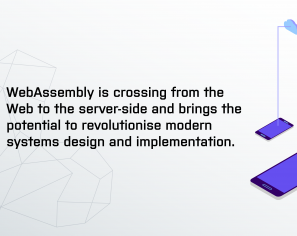July 8, 2016 | Microservices
OpenCredo recently co-organised the first Microservices Manchester event with OliverBernard recruitment, and it was a resounding success. Over 100 people showed up at the Victoria Warehouse near Manchester’s trendy Salford Quays for a day discussing the realities of implementing microservice systems.

The event, of course, couldn’t have happened without the organisers and the sponsors, Microsoft and Keep It Running.
A selection of the talks will be available online soon, but in the meantime here’s a recap.
From the start of event planning through to the post-conference drinks, the theme clear and unchanging. Microservice architecture offers many clear benefits for application development and fits well with modern development methodologies. It’s not, however, a silver bullet.
The talks remained true to this idea and gave attendees the benefit of hard-earned experience in what not to do as well as how to tackle common problems with best practice solutions. With this theme, we hoped to help attendees go away with a sense of cautious optimism, not blind faith.
The point of #micromanchester was to flatten the hype cycle graph. Great summary by @trismccarthy from @OpenCredopic.twitter.com/QwP00VlZkr
— JeanMarie (@jmferdegue) July 5, 2016
With many organisations now adopting microservices, it’s no surprise that parts of the community have started to look forward to the next evolution of the ideas. Michael Hausenblas included this in his keynote, talking about the past, present and future of microservices and introducing the idea of serverless architectures.
The idea was mentioned again in other talks, building a great deal of interest for Rafal Gancarz‘s talk on the topic. A great lightning talk from Amy O’Leary on Akka served as a good primer.
“Serverless architectures” with @RafalGancarz from @OpenCredo#micromanchesterpic.twitter.com/YfBfkiOSu6
— µManchester (@micromanchester) July 5, 2016
No conference with a focus on realism would be complete without talks from real world implementers who have struggled through adoption before best practices have fully been identified. Talks from Nic Jackson with lessons learned from Not On The High Street‘s journey away from a software monolith and Marco Cullen’s discussion of the logic behind the adoption of microservices gave attendees plenty to think about here.
A full house for @sheriffjackson‘s talk “Microservice, #Microservice wherefore art thou Microservice”! pic.twitter.com/ZGkJUcCDxq
— µManchester (@micromanchester) July 5, 2016
Micro services as a cost reduction strategy for project delivery. Marco Cullen from @OpenCredo at #micromanchester pic.twitter.com/S8PmNn0i0c
— JeanMarie (@jmferdegue) July 5, 2016
While concepts and tips are a core part of any tech event, there will always be those who want to watch someone open the toolbox and get some code up on screen. Microservices Manchester had this covered is well, with James Nugent of Hashicorp diving into an example of the popular Terraform for configuration.
Added to this and keeping with the theme of the event Nicki Watt and David Borsos provided some great example led sessions on security and authorisation in microservice systems, highlighting the strengths of tools like Vault.
“Look at things like OWASP and ZAP attack proxy within a microservices build pipeline” @techiewatt#micromanchesterpic.twitter.com/4TlIasrotg
— Daniel Bryant (@danielbryantuk) July 5, 2016
Joni Collinge from Microsoft gave attendees a great overview of the strengths of the Azure platform for reliable and scalable lighting services. It’s especially nice to see Microsoft making such an effort to engage implementers directly.
.@dotjson talking Reliable and Scalable Microservices with #Azure #micromanchester pic.twitter.com/LuRewqBgoX
— Marcus Robinson (@techdiction) July 5, 2016
On top of the great presentations from the speakers, there was a great buzz at the event with attendees swapping ideas and thoughts all throughout the day. We chatted to people at every stage of the journey. Those thinking about adoption appreciated the introduction to the concepts and some idea of the challenges to come, while those further along found comfort in talks which validated choices they had already made as well as discovering new approaches.
The information available covered a broad range, but all talks fed back to the central theme of making careful and well-considered technology choices when adopting microservices as an approach.
With so much interest at the event, we have created a meetup group to help those who attended to get together again and trade ideas as well as to give those who couldn’t make it a chance to share in the learning. To get involved join the Microservices Manchester group on meetup.com.
This blog is written exclusively by the OpenCredo team. We do not accept external contributions.


